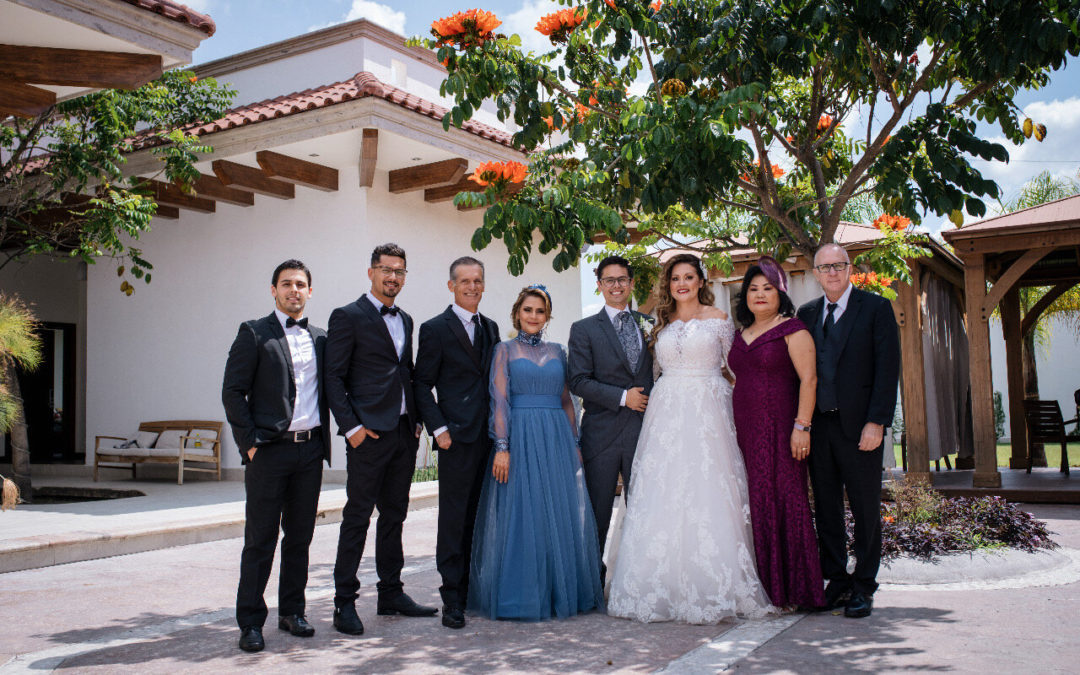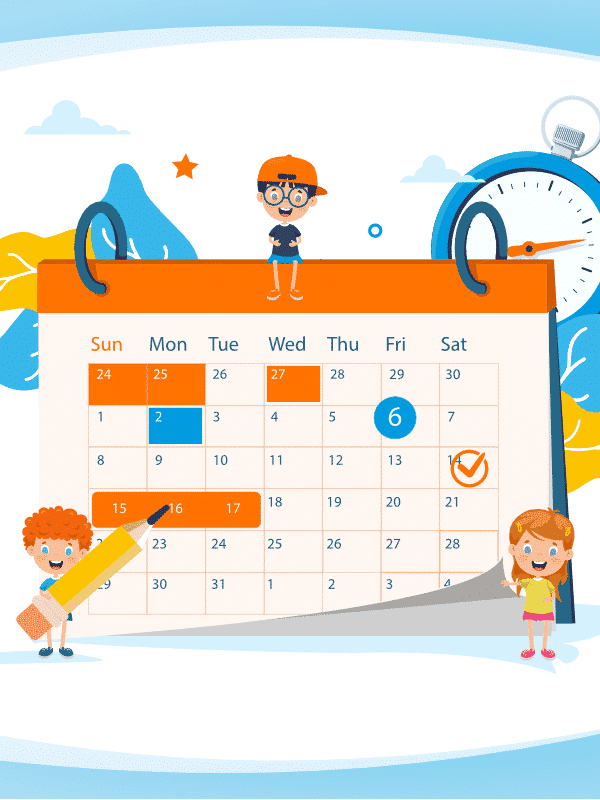TruFluency Kids! Sat down with Sarah Padilla to hear about how she came to live in a trilingual household (Korean, English, and Spanish!), and how she envisions raising trilingual children.
Where are you from?
I’m a Military brat – so that’s a funny question. I was born in my mother’s hometown of DaeJeon, South Korea. 2 weeks later I was in Monterrey, California. I traveled all over and went to high school in Rota, Spain. My dad retired in San Antonio, and I ended up staying here as well except for a few years living in South Korea several years ago. I consider San Antonio home now along with DaeJeon South Korea and now San Juan de Los Lagos Mexico.
What language did you grow up speaking in your home?
Korean and English.
How did you end up in a bilingual household today?
Actually, it’s trilingual. My husband is Mexican and his family are immigrants, so they mostly speak Spanish. I studied Spanish in school and learned a lot from when I was living in Spain, and practice with him and my in-laws often. My husband practices his Korean when we visit my family and when we go to my mother’s church. We had 3 unique weddings in 3 different countries: The U.S., S. Korea and Mexico.
Right now, we are in the process of having children, and our parents will be speaking their native tongues with the kids-which is Korean and Spanish. So our moms will be helping with the kids, so they will speak Spanish and Korean with them as much as possible during the day. I also plan on spending a month in Korea with my family each year, and then we’ll go to Mexico a couple of times a year as well. We don’t need to focus on English at all because we live in the United States and that will automatically come. Up until 4 or 5 years old, kids just soak up whatever is presented to them. I remember I was speaking Tagalog fluently because my mom’s neighbor in Hawaii spoke it and I picked it up. Sometimes I would interchange English, Korean and Tagalog confusing my poor dad.
How is your Korean?
English is definitely dominant and I speak Korean fluently, although sometimes I have to search for some words as I don’t live there anymore. I didn’t go to Korean school, so I can’t read and write as well as I do in English.
How is your husband’s Spanish?
My husband is fluent in Spanish. Both parents speak it to him and he also attended a bilingual primary school. My husband’s parents would drop him off in Mexico to spend time with family early on for about a month at a time and we believe that this is why his Spanish is really strong.
How is YOUR Spanish?
I’ll use my terrible Spanish with my husband’s family, and they don’t care. You just have to throw yourself in and be immersed in it and not be embarrassed. The problem is that we were speaking Spanish at our own home so that I could practice, but then it stopped for some reason. You just forget to keep it up. You forget to keep practicing. When we stopped practicing at home, I really felt the difference when I would visit his family. You really have to keep it up – even if it’s just 5 minutes a day. I need and want to be better for my children and our family as a whole. It’s important to us that our children are fluent in Korean and Spanish.
So, how was introducing the two families?
It was great! My dad is used to different cultures from being in the military and moving around so much-not to mention marrying a Korean woman. My in-laws are from San Juan de los Lagos and before we got married, they had only really been to Mexico and Texas.
When we had our three weddings, the parents went with to each one. My parents had such a blast in Mexico and my in-laws in Korea (we went for 2 weeks and so they got a real good feel for my family and the Korean culture). All of my family, whether Mexican, Korean or American would all attempt to talk to each other. Many times they didn’t really know what the other was saying, but hand gestures and the little bit you do know about that language and culture was brought up! It was a very special and loving time.
How did your life change due to living in a trilingual household? Or living a trilingual life?
It’s kind of nice and sometimes it’s funny. I studied Spanish in junior high and lived in Spain, so the language comes and goes. But some words are really different. For example, I told my husband ‘vale’, which means ‘okay’ in Spain, and my husband just looked at me as if to say ‘what?’. My husband didn’t know what this meant as MExican Spanish doesn’t use this term.
Last year when we had our three weddings, it also so happened to be my 20th class reunion in Rota, Spain. I took my husband to my high school reunion in Spain, and there he got to hear the Spanish say ‘Vale. Vale. Vale.’ to his degree a bit excessively! All of these differences in experiences and accepting of different ways of speaking and doing things really becomes a part of who you are. It shapes you.
What challenges do you think you’ll face by trying to keep it all in Korean when your child will mostly speak Korean and your husband doesn’t?
While the children are learning Korean and Spanish, it’ll be our moms-their primary care takers, who will be instilling the languages respectively with them as we reinforce it. So as the children learn basic Korean and Spanish, along with let’s say the alphabet, we will in turn learn with them. This way the family as a whole will be strong with all three languages.
Biggest hurdle to get over in a bilingual household?
Definitely making sure the kids retain the languages by not only practicing Spanish and Korean language daily, but immersing them in the countries that speak it annually for at least a month at a time. This also helps them to keep up with the slang and phrases that become popular.
What do you suggest for this?
Going to Korea and Mexico once a year for a month at least.
Biggest blessing living in a bilingual household?
It makes the world a smaller place. We’re big travelers and foodie people, and I feel like when you know other languages and cultures, it makes the world easier. You relate to people more. It helps in so many aspects of life. Studies have shown that multilingual children’s brain structures change. It improves your memory, helps you process information better, and helps with multitasking just to name a few.
What tips can you give to parents struggling with creating a bilingual household?
Keep it up! Learn and keep learning. It’s so easy to stop working on a certain language and fall out of routine. Even if it’s just a small amount of time every day, do it. Don’t lose what you’ve spent so much time on.
TruFluency Kids! Loves hearing from bilingual families, how they’re living, how they succeeded in raising bilingual children, and the challenges that come with that. If you or someone you know if raising bilingual children, please contact us. We are eager to hear your story!
TruFluency Kids! Spanish Immersion provides online Spanish classes for kids – small groups or private lessons. If interested in making your own group class with your friends or if you are interested in private lessons, please call 469-338-9382 or contact us.


